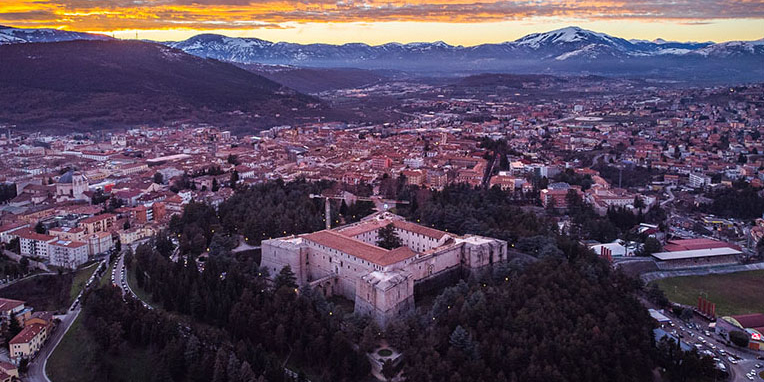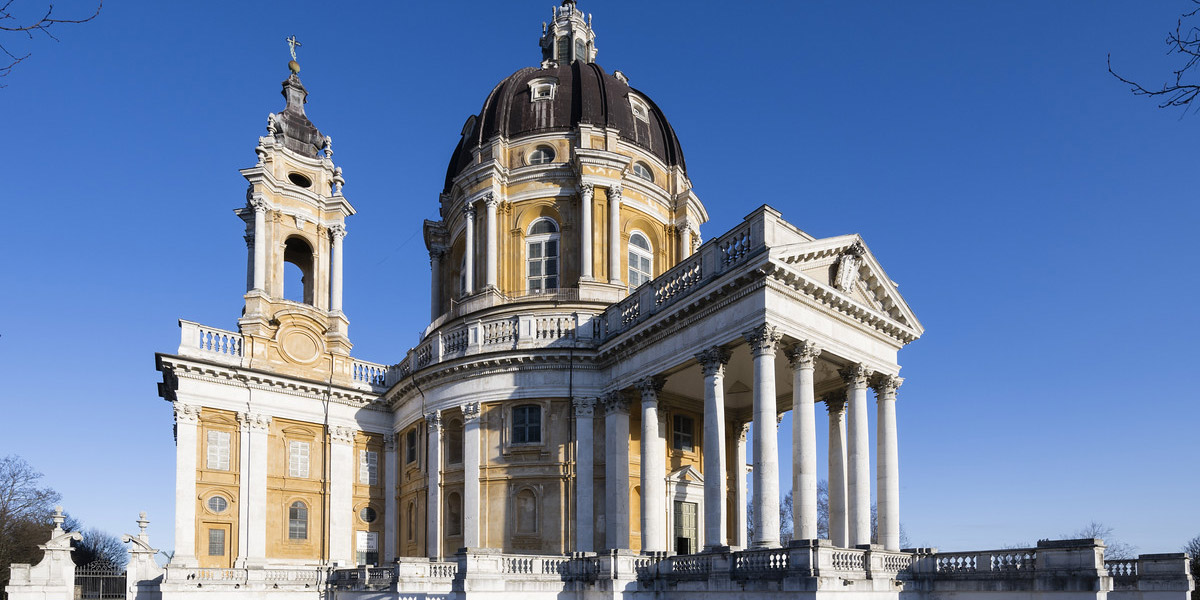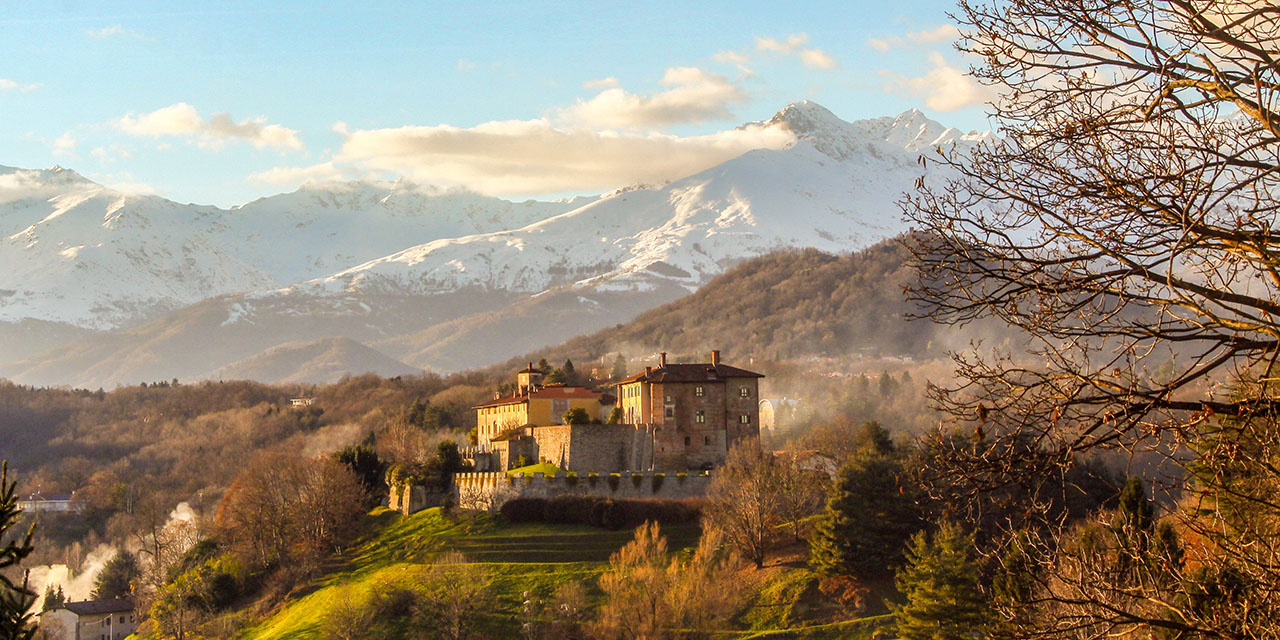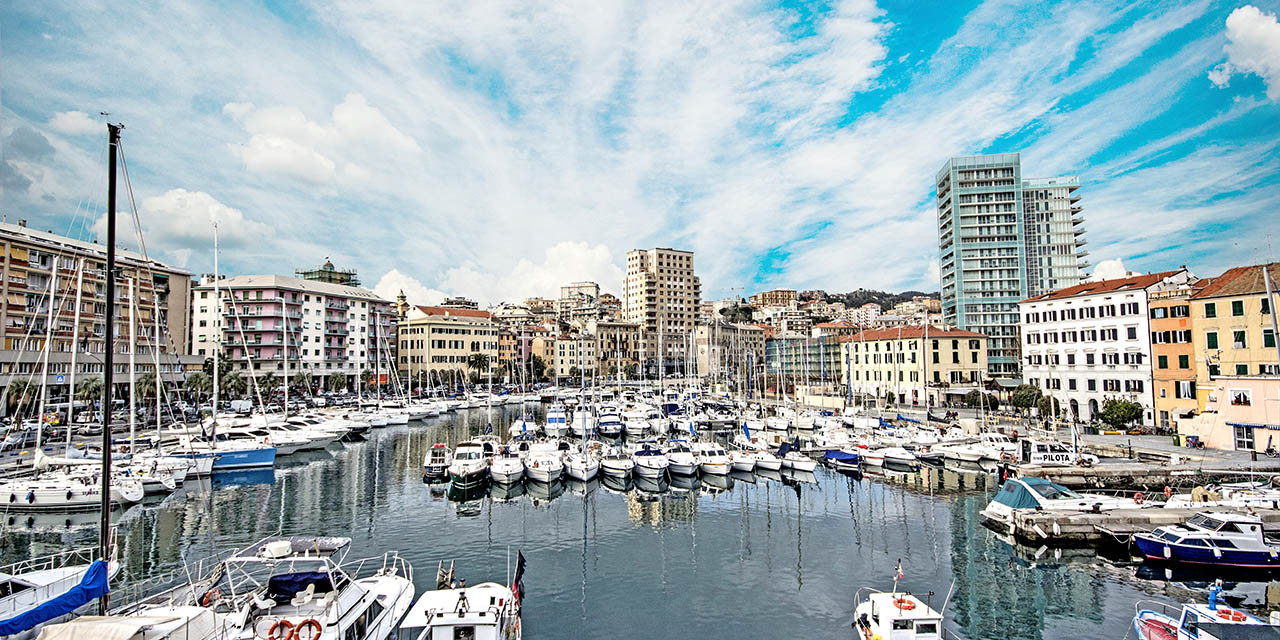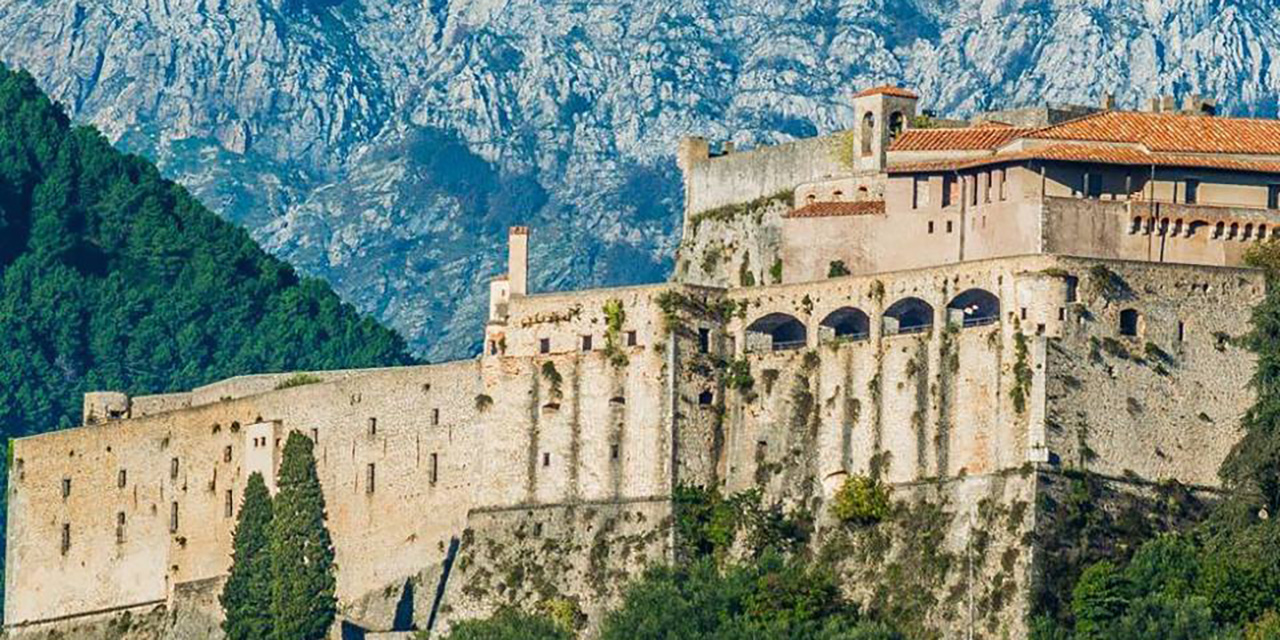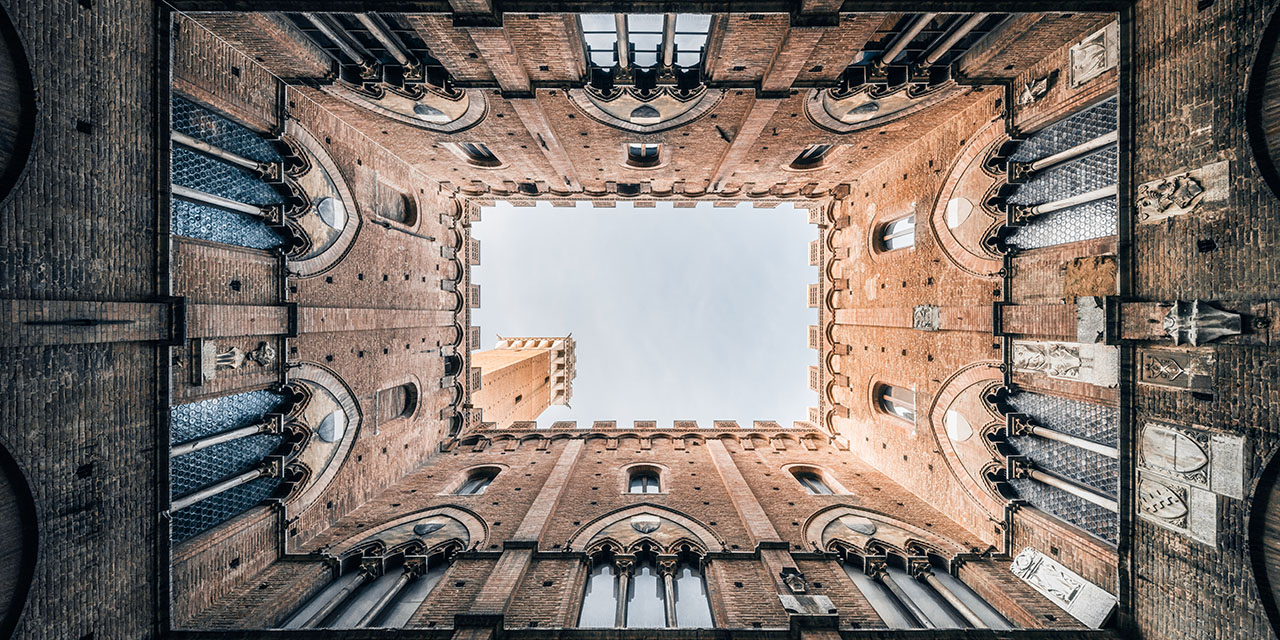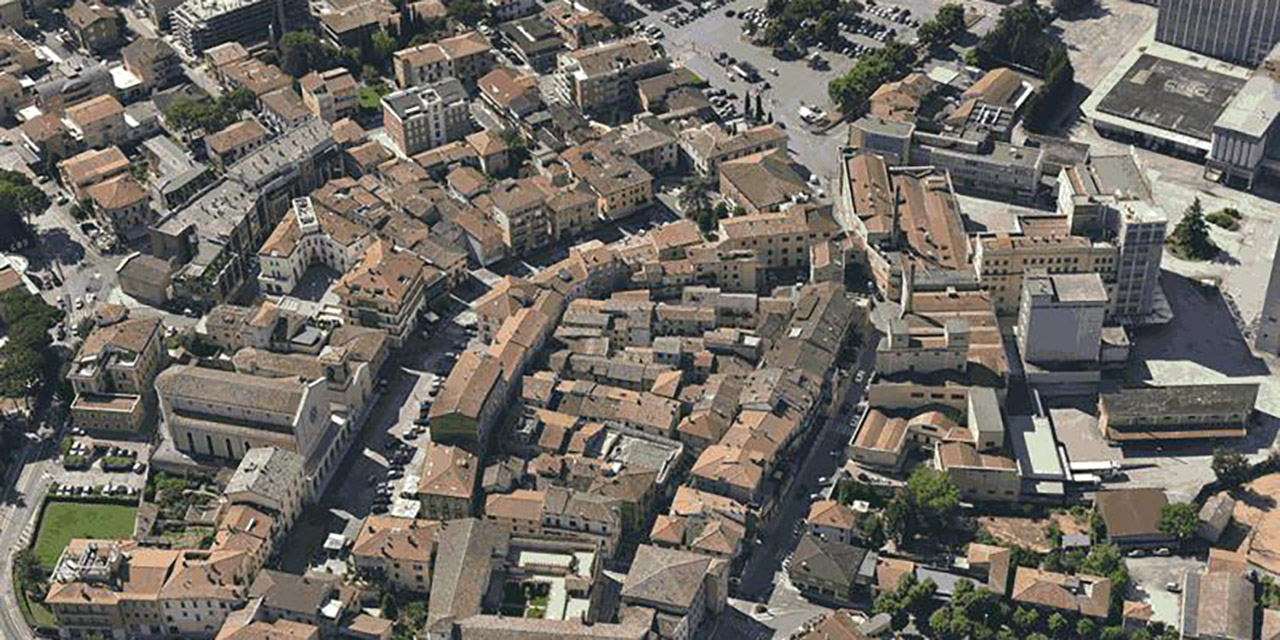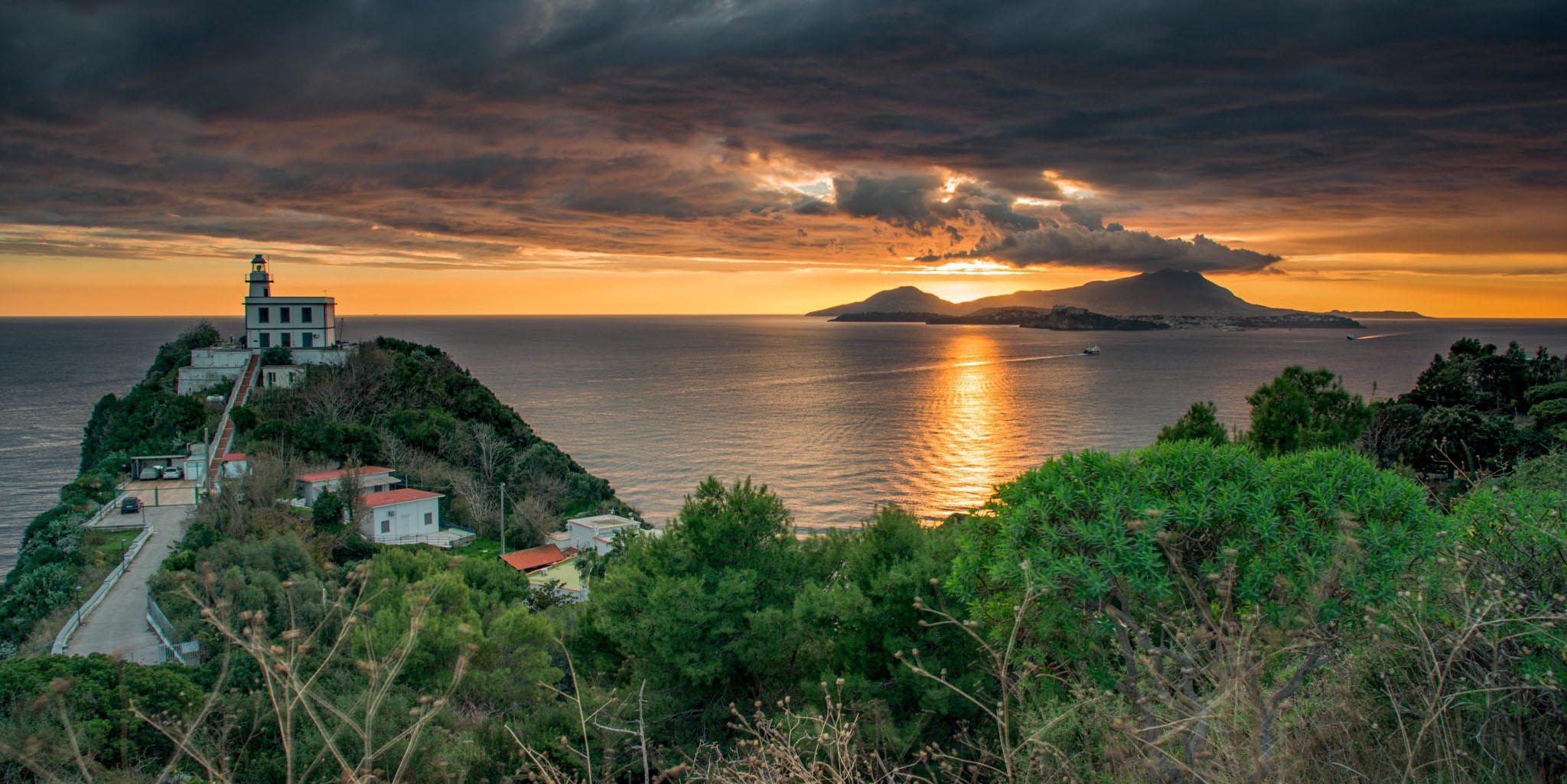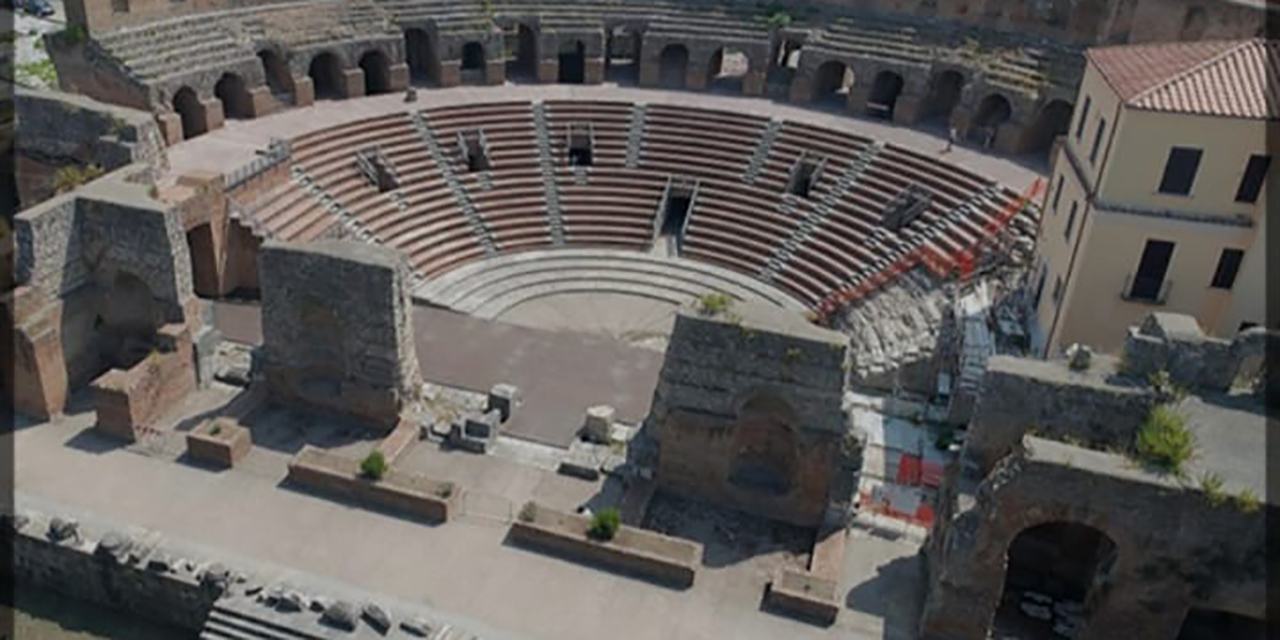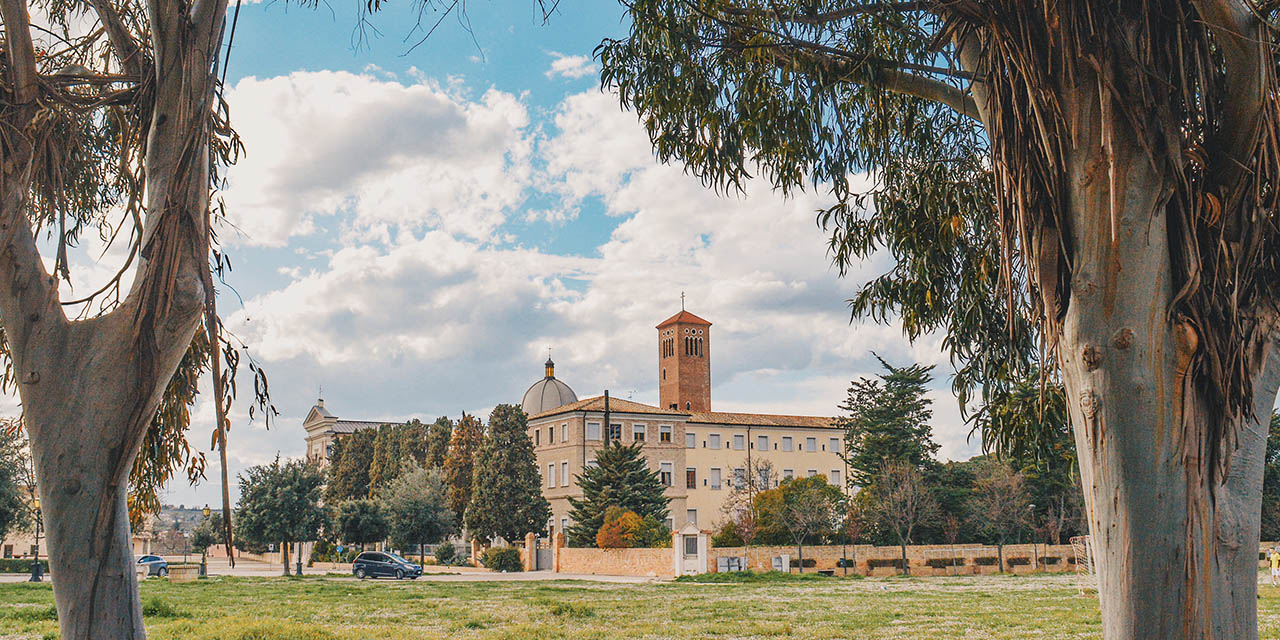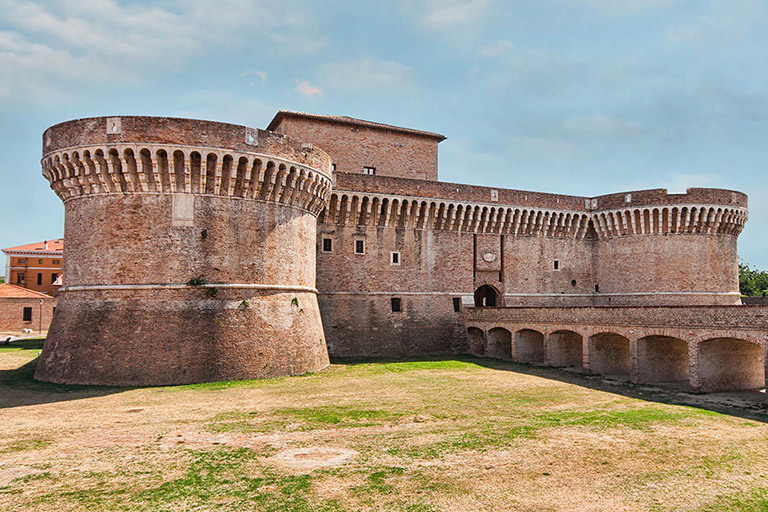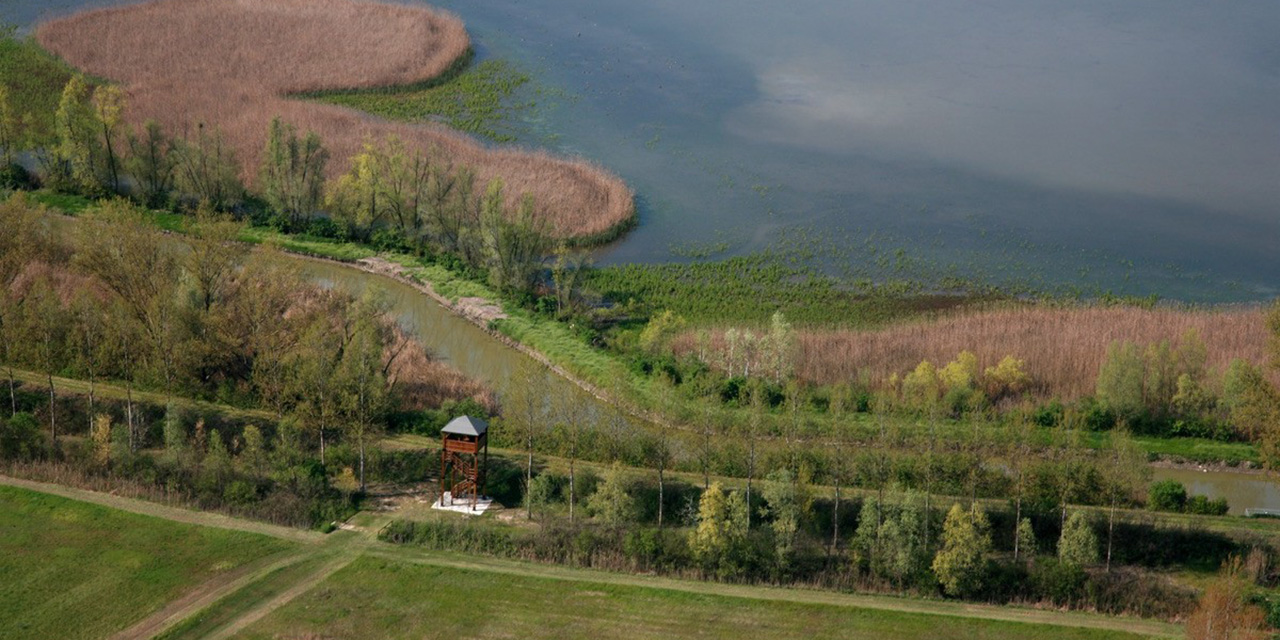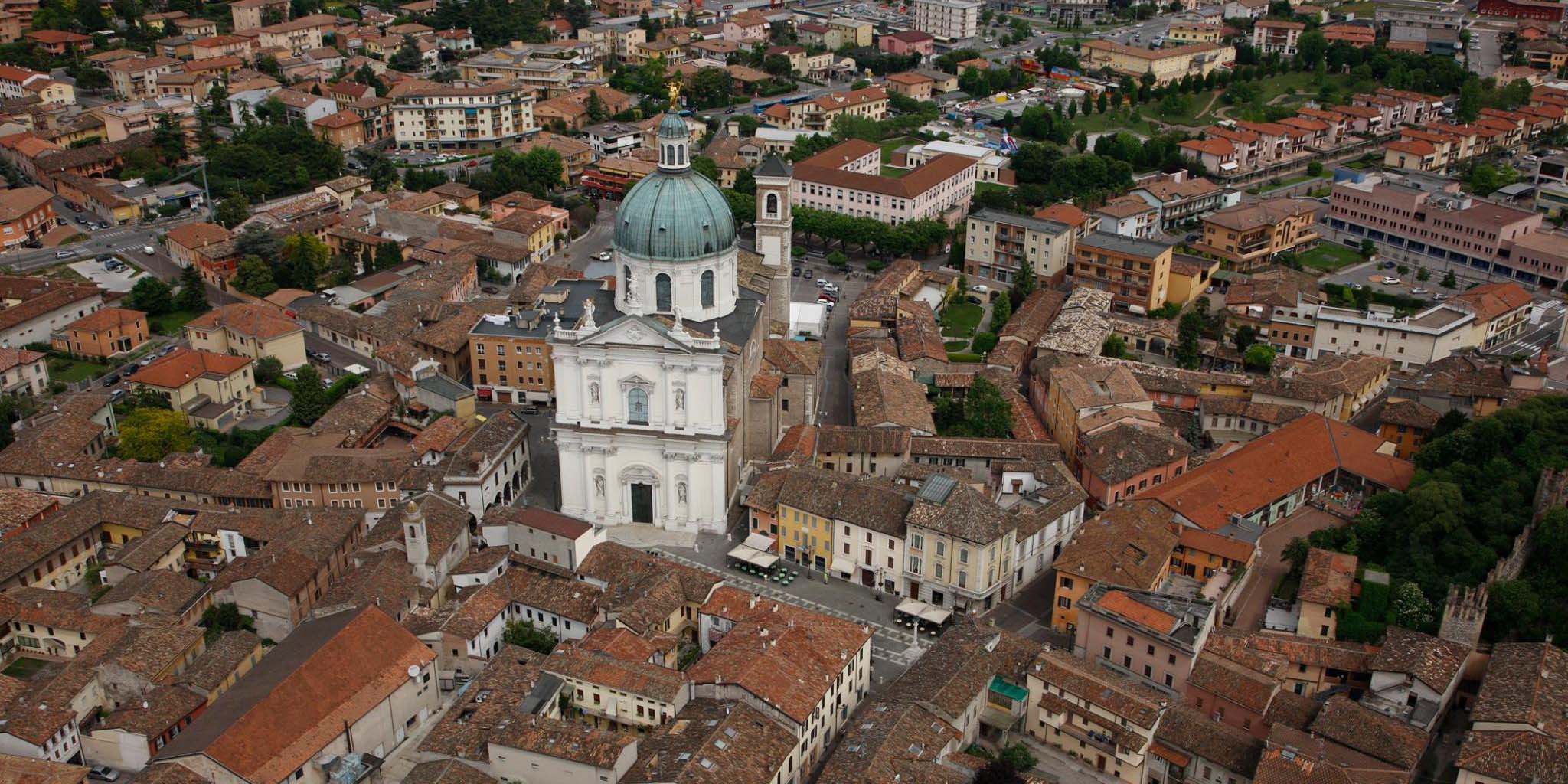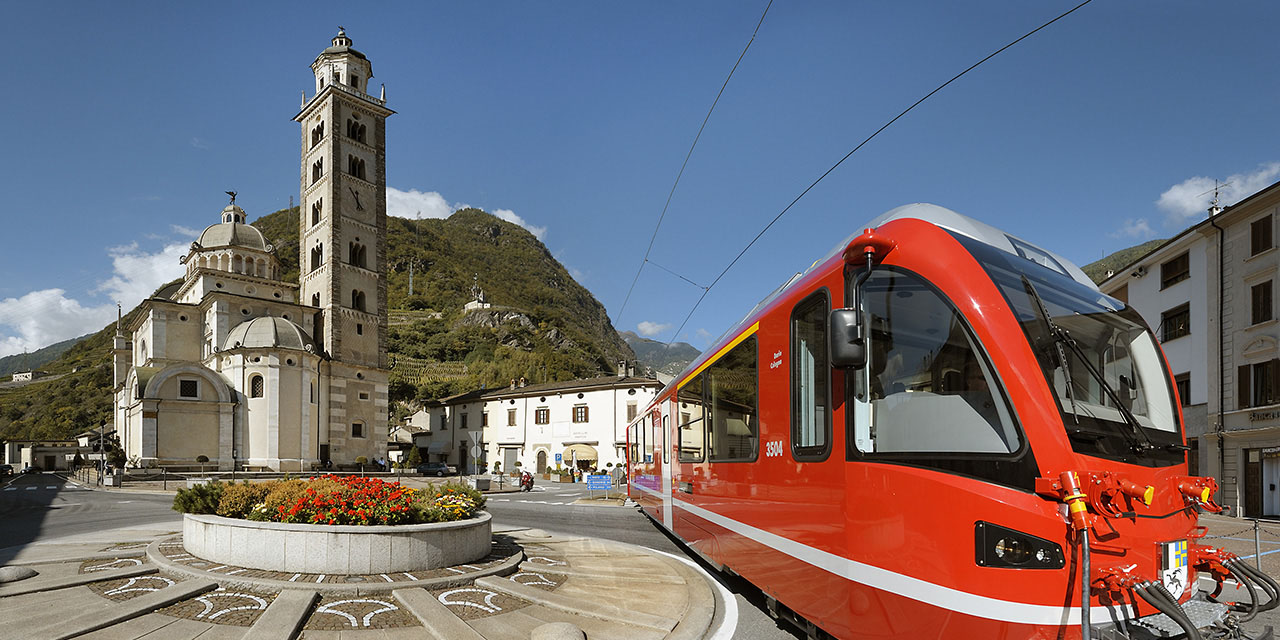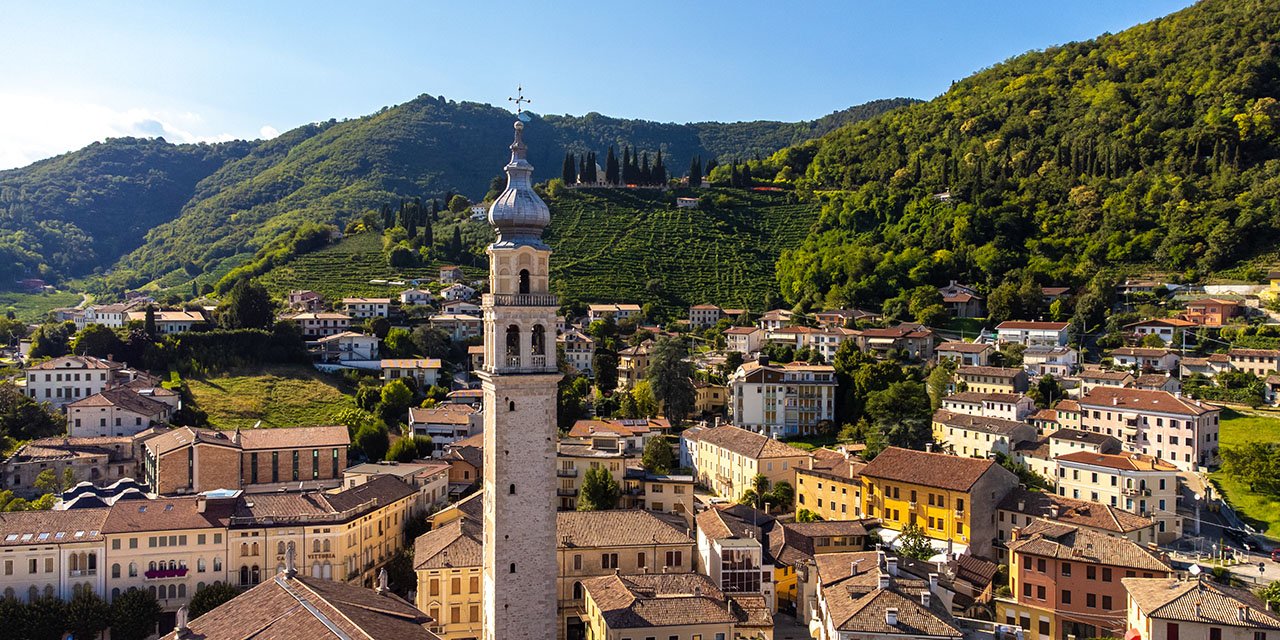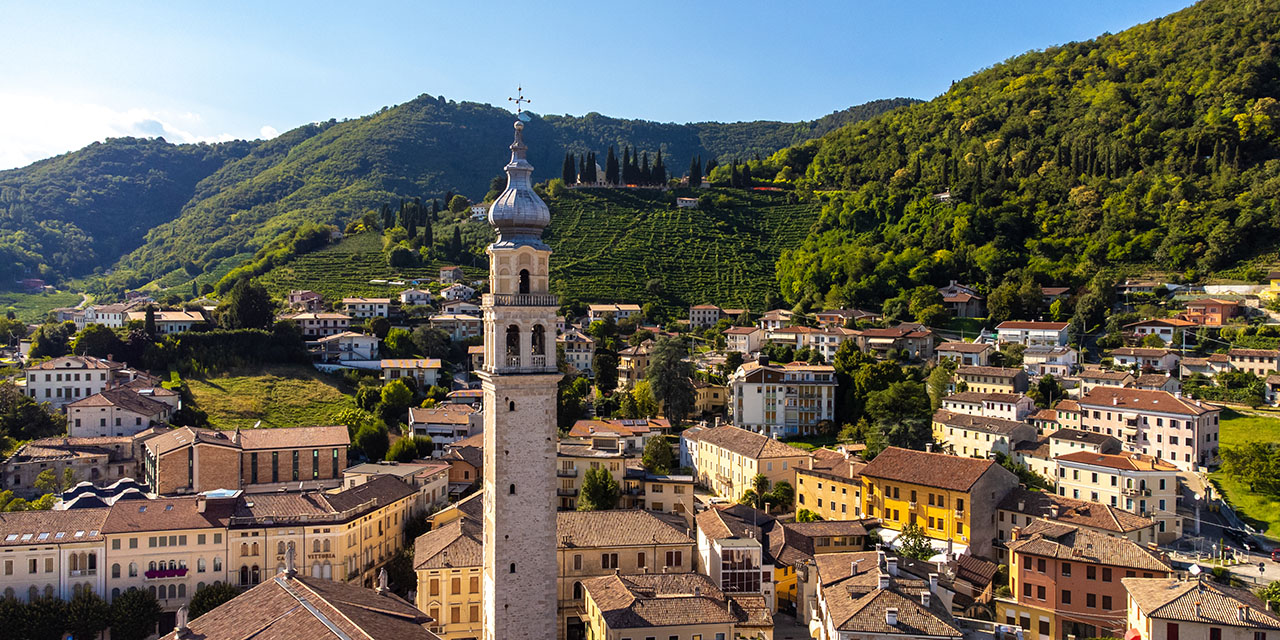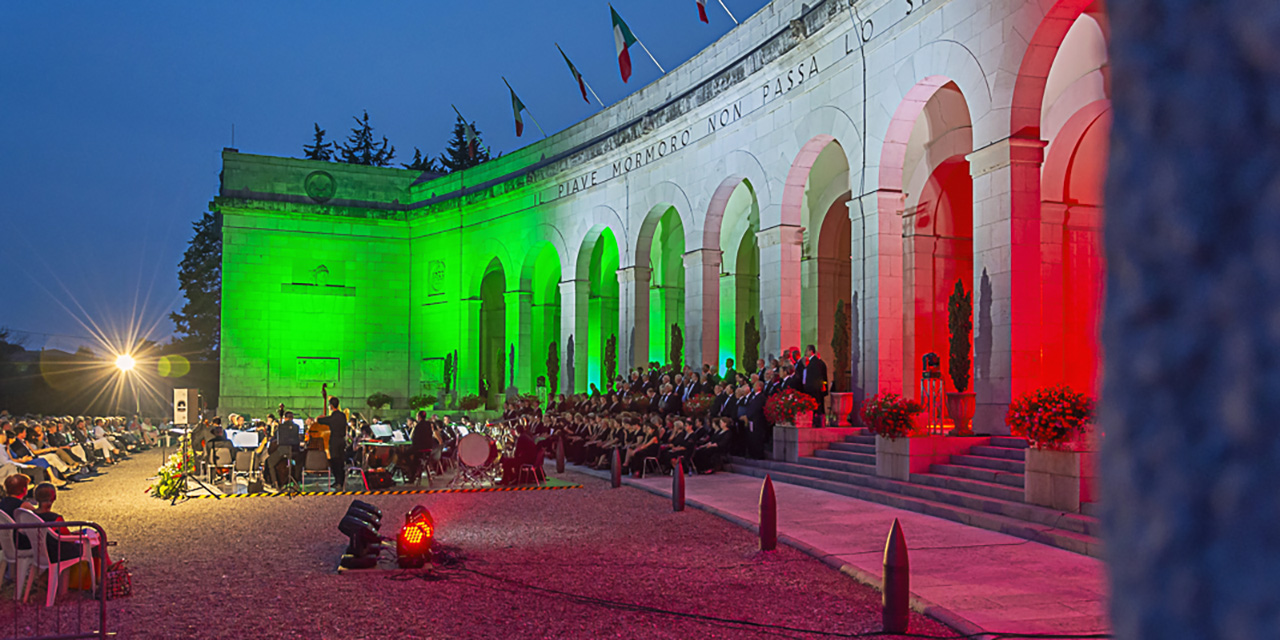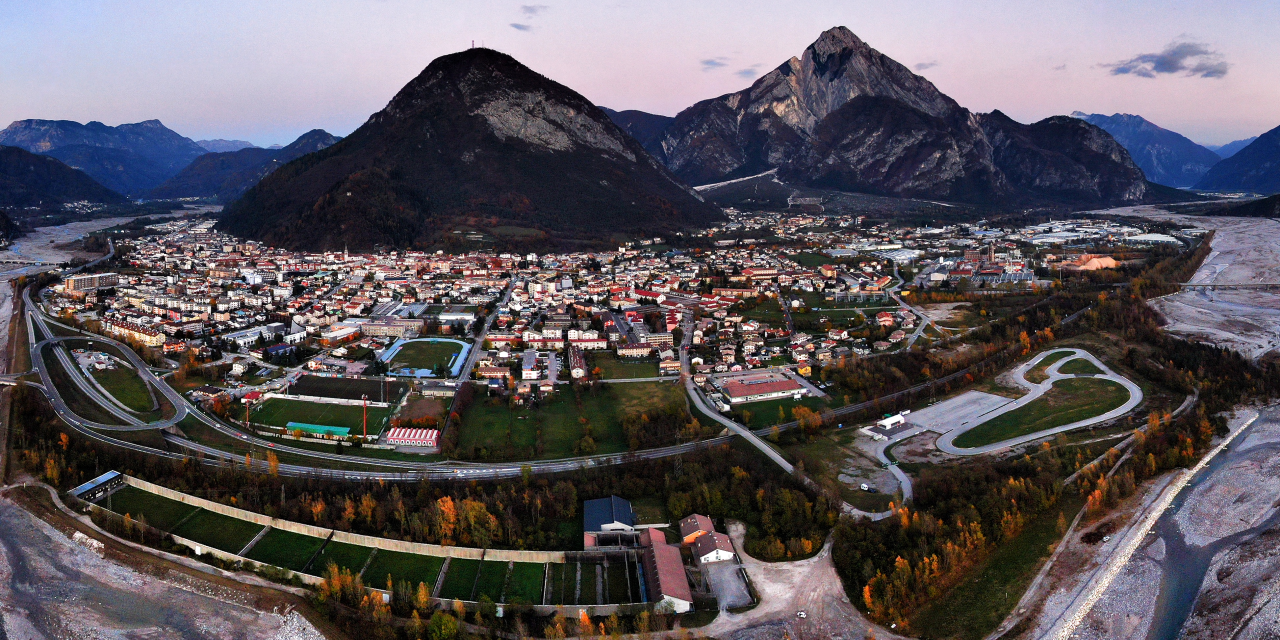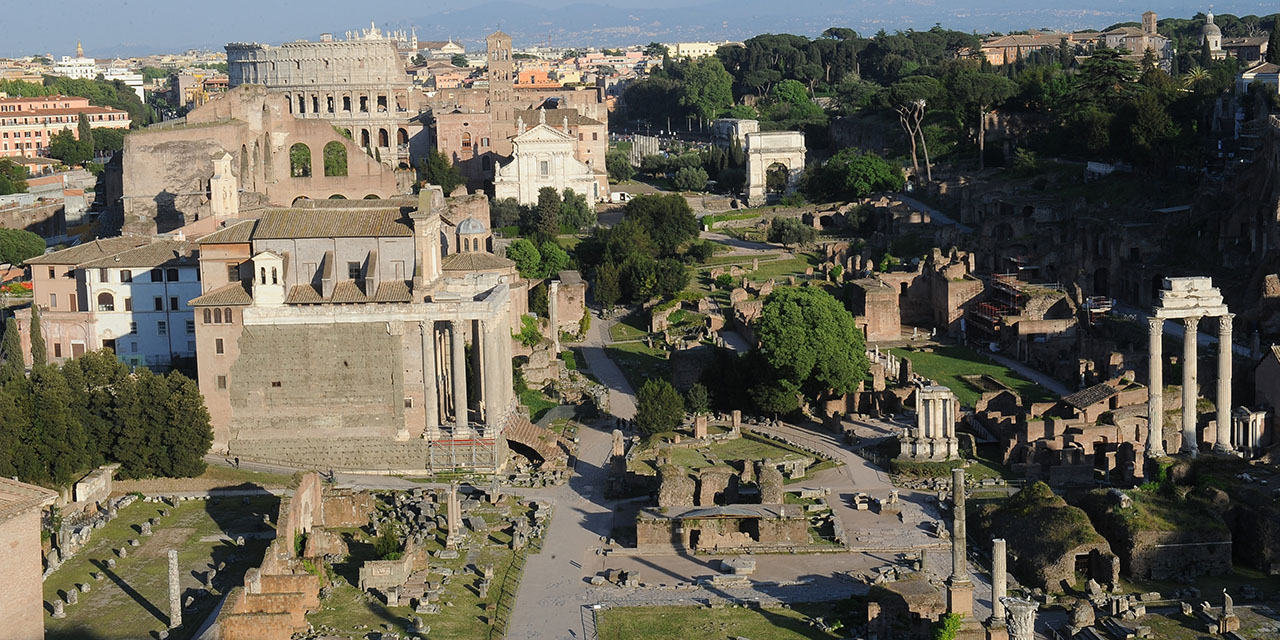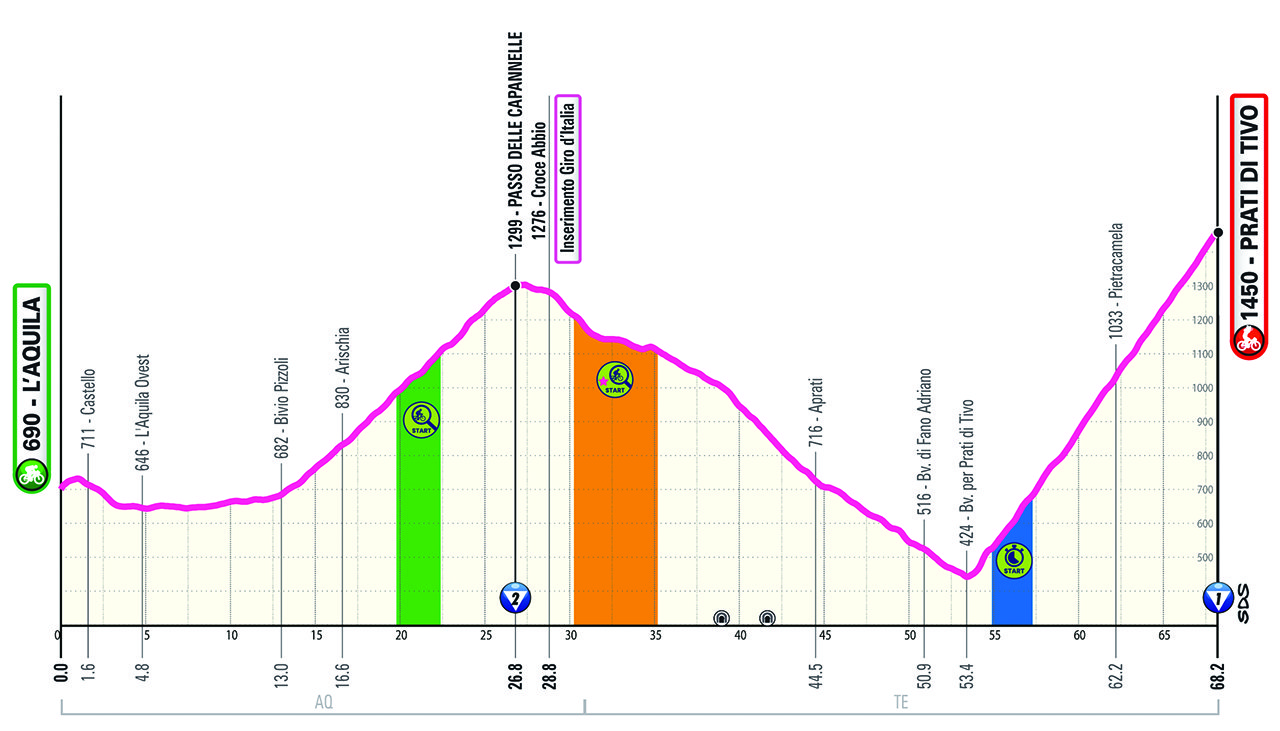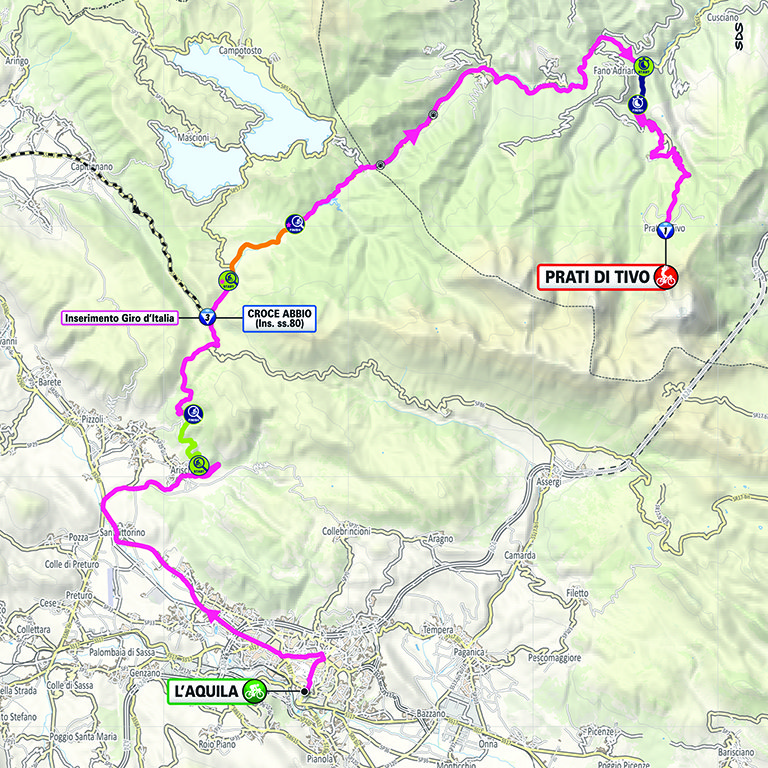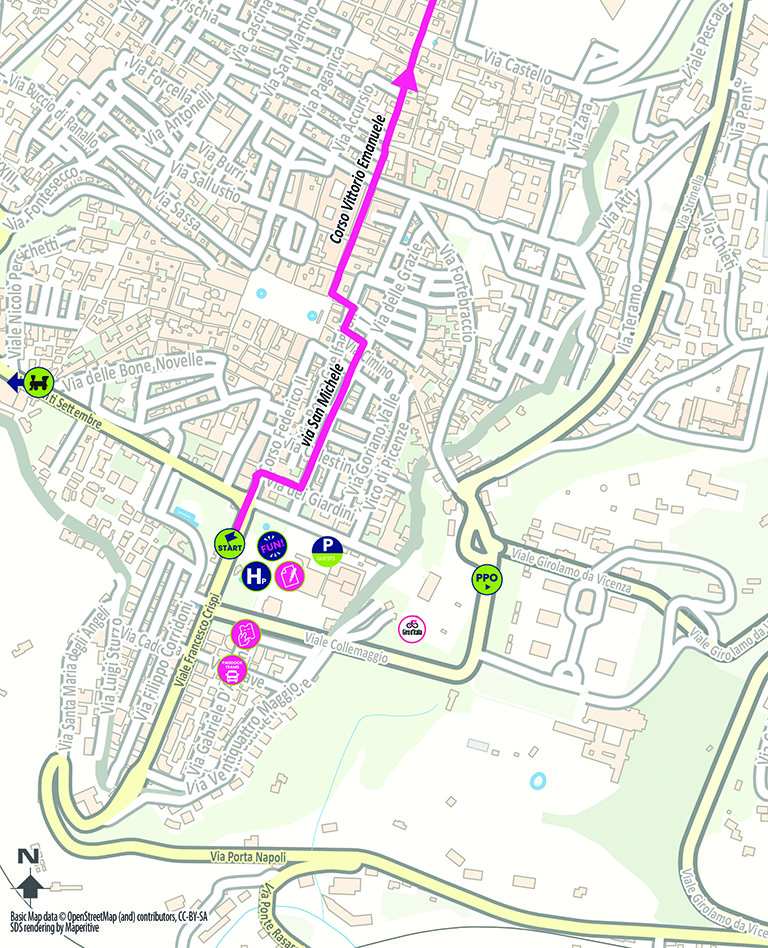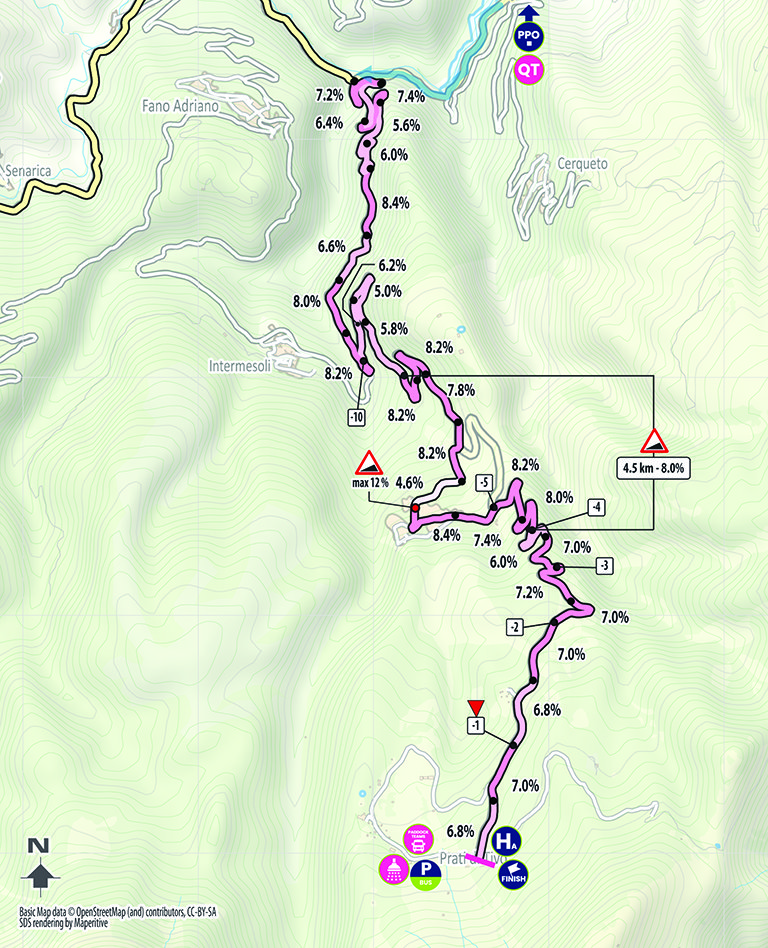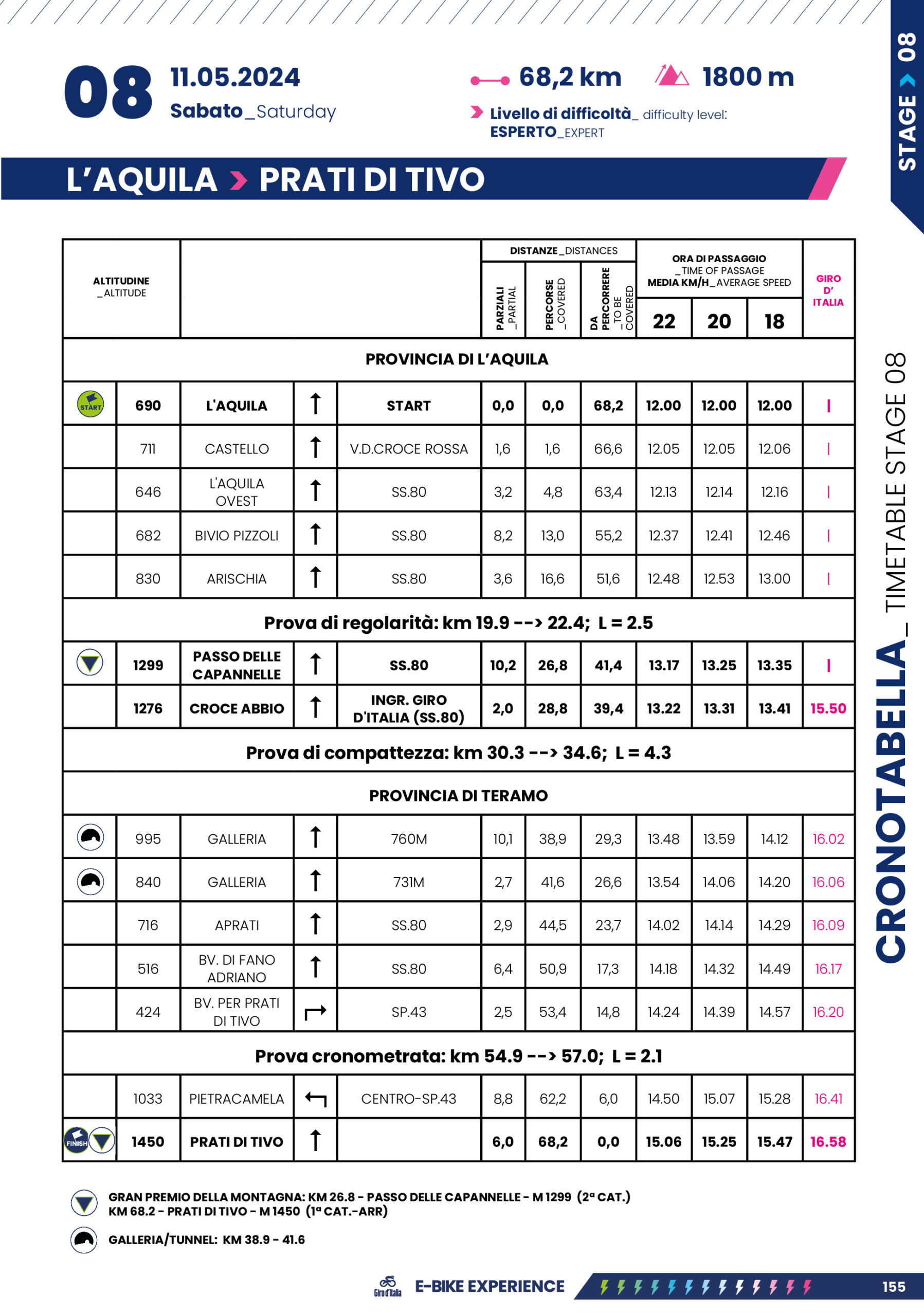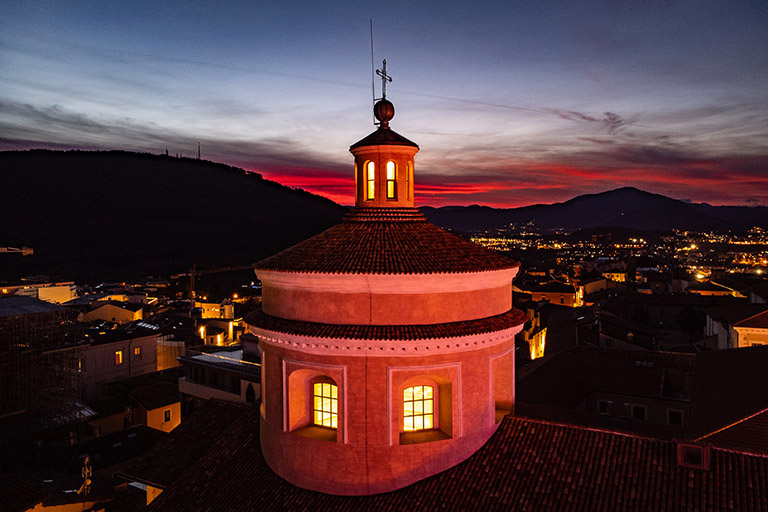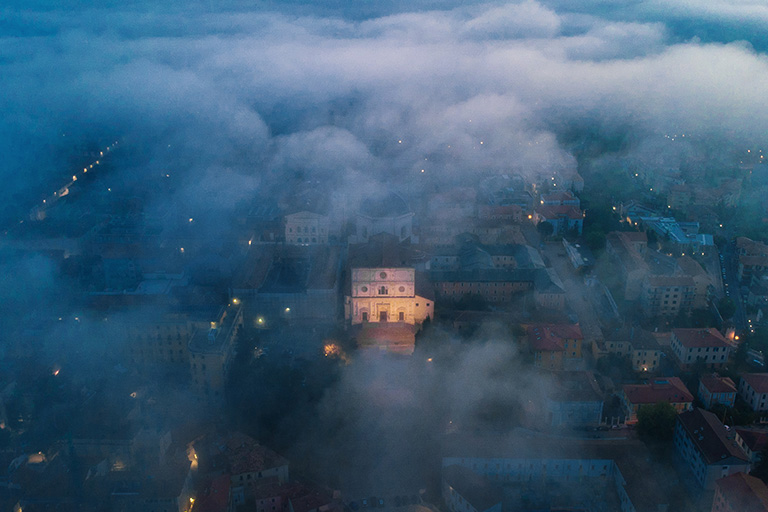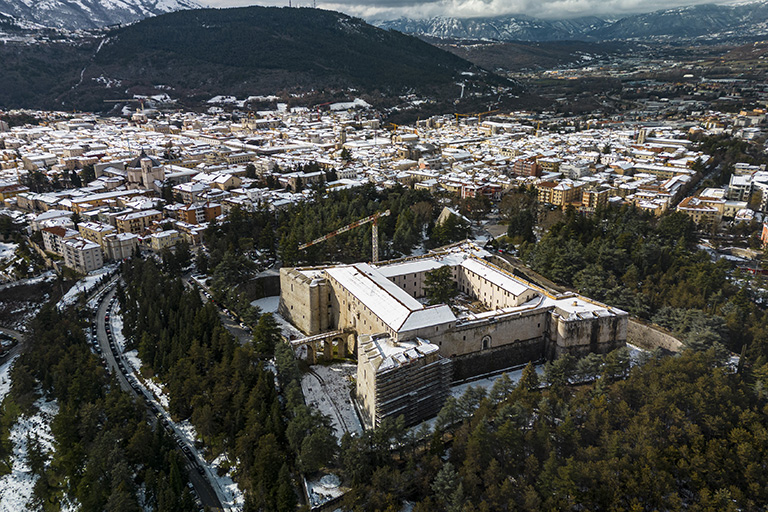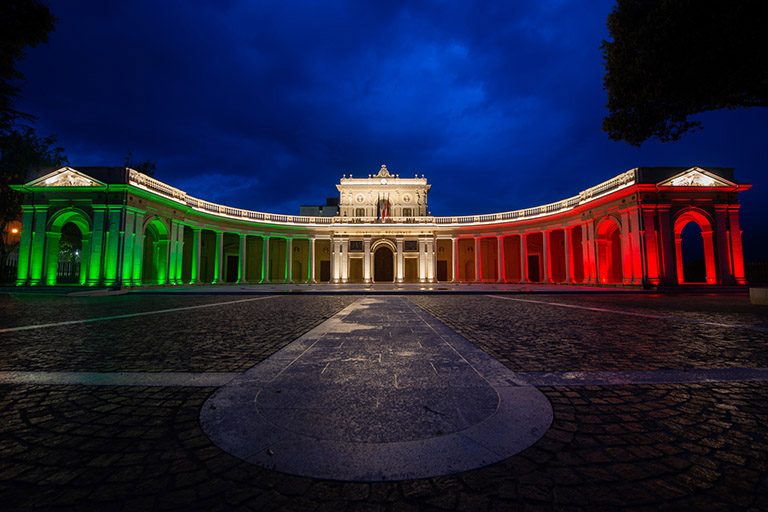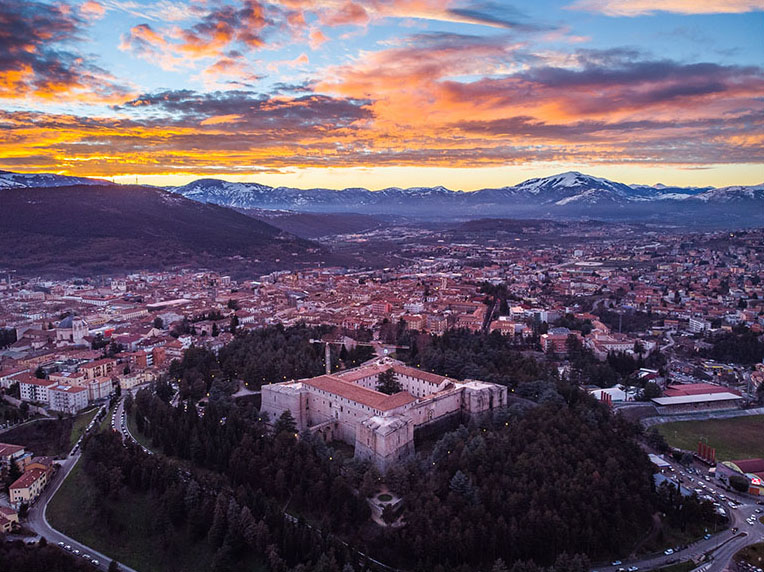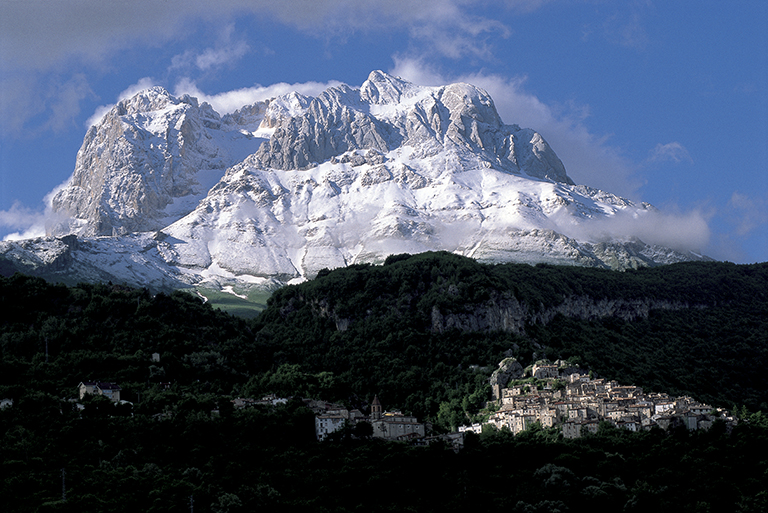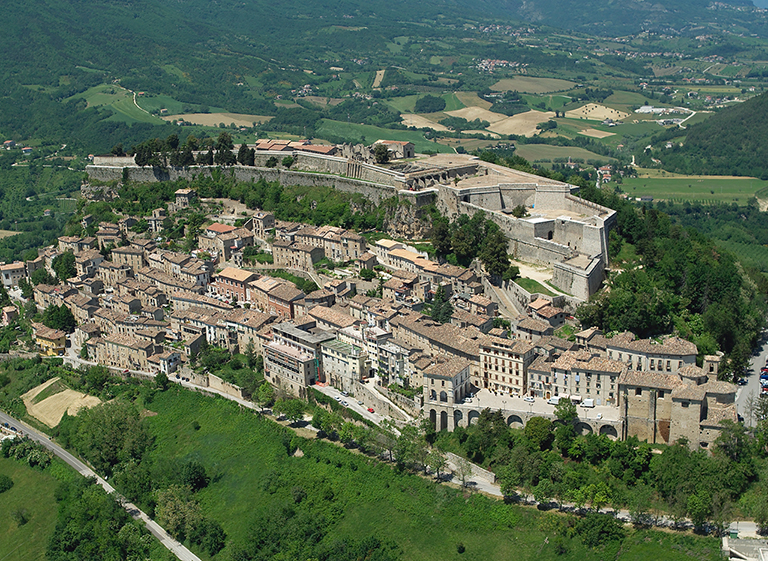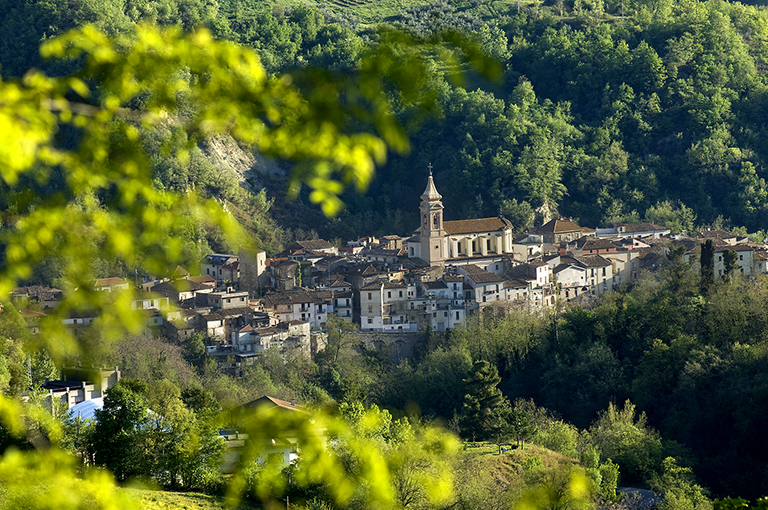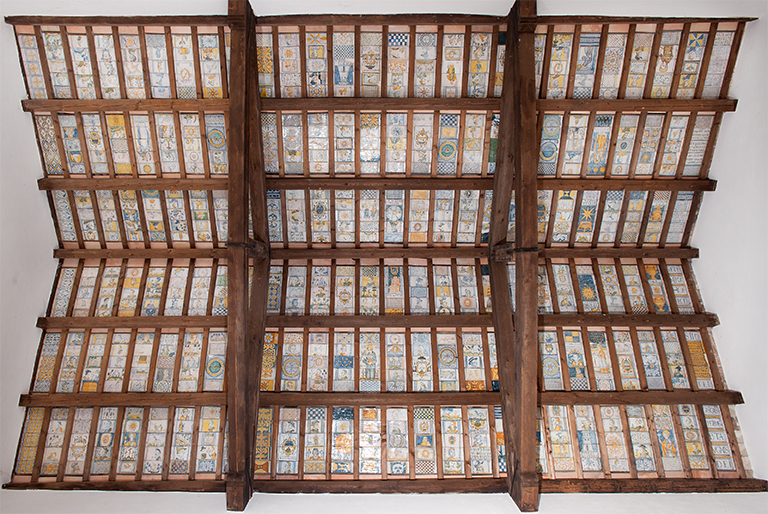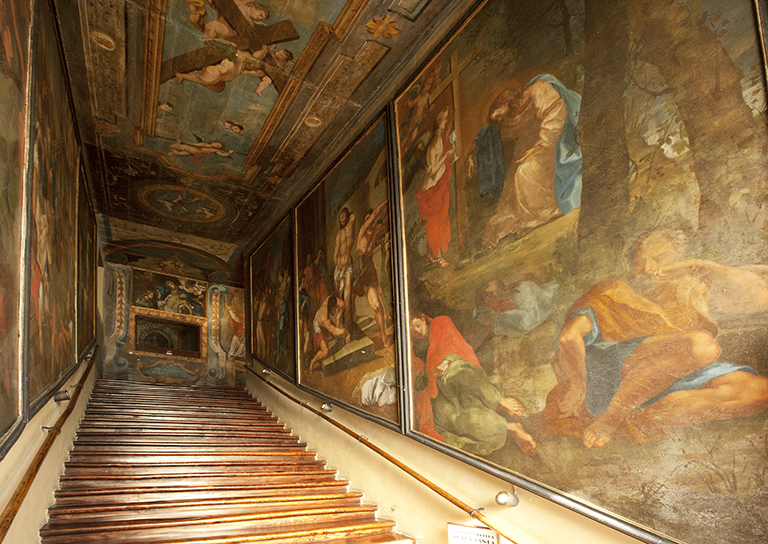profile
map
start / finish
itinerary timetable
tourist info
Host city:
L'Aquila
Overview
L’Aquila, the capital of Abruzzo, is an ancient city whose origins date back to 1254. Distinguished for its history and monuments, it experienced a period of extraordinary economic flourishing throughout the Middle Ages and up to the 16th century, becoming the second largest city in the Kingdom of Naples. Starting from the sixteenth century it housed a university and, towards the end of the fifteenth century, one of the first printing presses. Among its main monuments, which include important palaces, courtyards and churches, the basilica of Santa Maria di Collemaggio stands out, a jewel of the Abruzzo Romanesque style, built starting from 1288, with the majestic facade in white and pink stone decorated with rosettes; the basilica of S. Bernardino da Siena, dating back to the mid-15th century, with an elegantly sculpted white stone facade; the monumental Fontana delle 99 Spouts, dating back to the XIII century; the Romanesque churches of San Pietro da Coppito, with valuable theories of fresco paintings, and of San Silvestro, which, in addition to the remains of the original pictorial decoration, houses a copy of Raphael’s Visitation, the original of which is now in the Prado; the baroque church of Santa Maria del Suffragio, built in memory of the victims of the dramatic earthquake of 1703, with a chapel designed by Valadier. The monumental evidences are framed by a naturalistic context of rare charm, since the city rises at the foot of the Gran Sasso d’Italia massif, surrounded by a mountain habitat rich in woodland and fauna peculiarities and by villages and castles of considerable historical and monumental importance , in an area that is included in two national parks. The main event, with an important historical and spiritual value and with a significant identity connotation, is the Celestinian Pardon, included in the UNESCO intangible heritage list, an annual jubilee, which takes place from 23 to 29 August and takes its name from the Bull of Forgiveness , the document with which the Holy Pope Celestine V, the day after his coronation as pope, which took place on 28 August 1294 in the basilica of Collemaggio, wanted to give a plenary indulgence to anyone who had crossed the Holy Door of the Basilica of Collemaggio, between the vespers of 28 and those of 29 August. The event, which includes a rich program of cultural events, sees its main moments in the opening ceremony, on August 23, with the arrival of the Morrone Fire, after a route that follows the itinerary taken by Celestino V to reach L ‘Aquila from the Hermitage of Morrone, near Sulmona, and in the Historic Procession of 28 August, with which the precious parchment is escorted from the Municipal residence to the basilica, where it will remain on display for 24 hours. The 2022 edition of the event saw the historic presence of Pope Francis, the first pontiff in history to preside over the solemn opening ceremony of the Holy Door, who, as a further tribute to the City, wanted to extend the Celestinian Jubilee until 2023.
Gastronomia
The city of L’Aquila and its territory have numerous food and wine excellences. In particular, the saffron, the lentils of Santo Stefano stand out above all, as well as various types of native legumes, and the nougat, a typical dessert of the Christmas tradition. Other typical products of the area are also very well known, such as dairy products, cheeses and cured meats, which have particular processes.
Beverages
As liqueurs, the gentian one is particularly appreciated.
Punti di interesse
Prati di Tivo
Panoramica
Prati di Tivo is a tourist resort in the municipality of Pietracamela (Teramo) located at an altitude of 1,450 metres, at the foot of Gran Sasso d’Italia, which at 2,912 metres is the highest peak in the Apennines. Surrounded by beech and aschiero woods, it is one of the most fascinating natural landscapes in Abruzzo, characterised by a very rich and varied flora with anemones, gentians, orchids and primroses.
Prati di Tivo is a tourist resort that attracts tourists and sportspeople all year round, as it offers visitors a number of customised seasonal services along with a broad variety of hotels. It is the most important site in the Apennines for both winter and summer climbing, and it features hundreds of kilometres of hiking trails for all levels of difficulty. In the winter season, it is a popular destination for ski lovers, and offers the possibility of exciting snowshoe hikes in the marvellous Bosco vetusto dell’Aschiero, a forest which is home to giant centuries-old beech trees. From Prati di Tivo it is possible to reach the Carlo Franchetti Alpine Shelter, located at 2,433 metres above sea level between the majestic peaks of Corno Grande and Corno Piccolo and near the Calderone Glacier, the southernmost glacier in Europe.
Punti di interesse
Pietracamela is an ancient village located near the course of the Rio Arno at an altitude of 1,005 metres. The centre, perched on a mountain slope and surmounted by a looming rock, consists of elevated buildings and narrow cobblestone alleys surmounted by small balconies that look out onto belvedere terraces and dominate the Gran Sasso mountain range on one side and the vast panorama of the province of Teramo in the valley on the other.
Entering the small streets of the village among the stone houses, one comes across the ancient church of San Giovanni Battista, built in 1432, containing a wonderful and impressive weight clock mechanism from 1700. Continuing along the narrow streets we reach the Church of San Rocco, built in 1530 and dedicated to the saint during the plague that was raging throughout the peninsula at that time. Close by is also the imposing Church of San Leucio, Pietracamela’s patron saint.
Pietracamela’s peculiarities are undoubtedly the rock paintings by master Guido Montauti (1918-1979), an internationally renowned artist who was a native of this town. This is an open-air museum and a destination for visitors all year round.
Pietracamela is well-known within the Italian mountaineering world, as it gave birth and is still home to Italy’s longest-living mountaineering association, the ‘Aquilotti del Gran Sasso – Alpinisti di Pietracamela’, which will celebrate its 100th anniversary in 2023.
A short distance from Pietracamela is the village of Intermesoli, which also boasts ancient origins and, between the Middle Ages and the Renaissance, was a highly populated centre thanks to wool processing and forestry activities.


